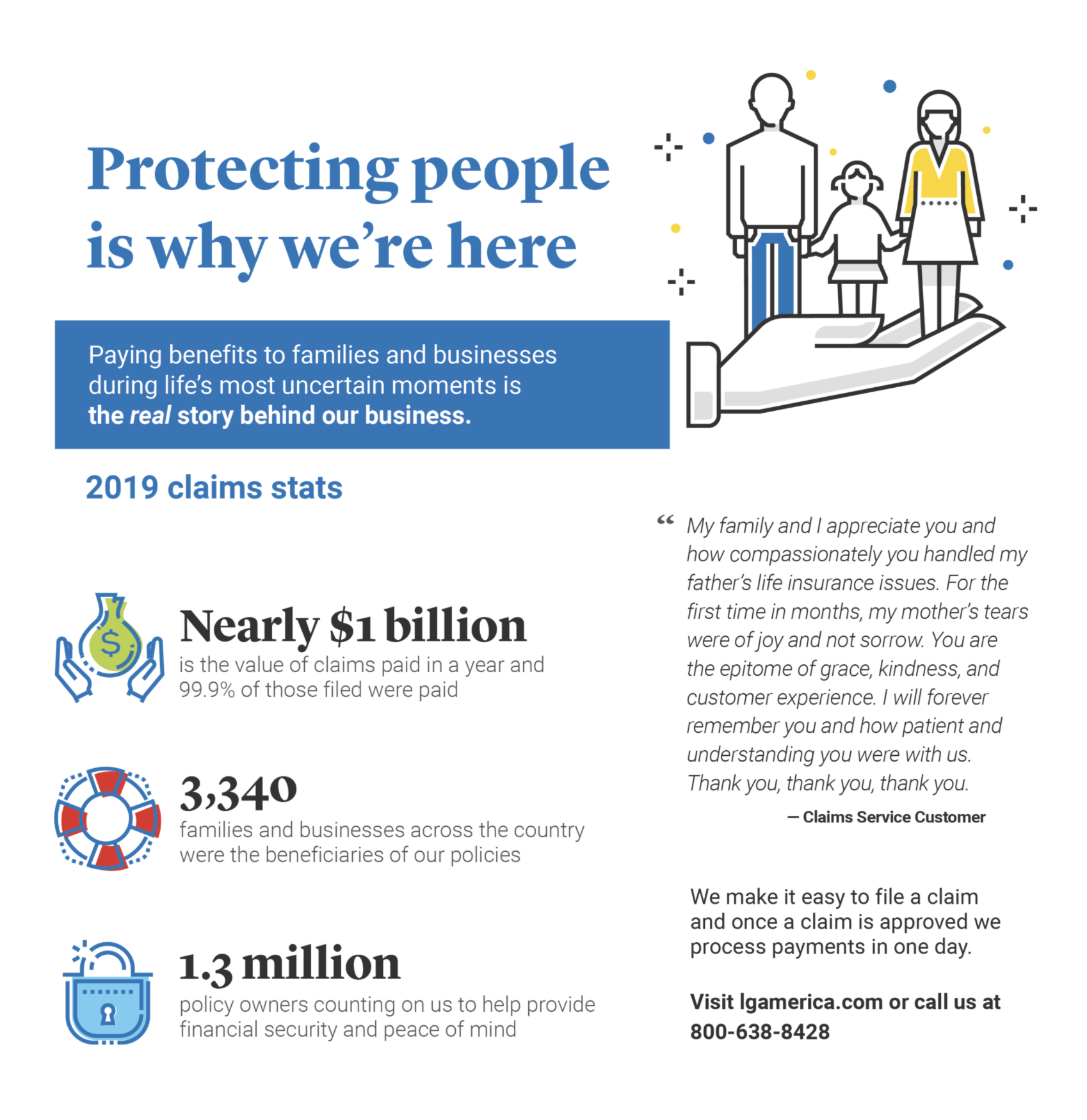A life insurance policy is an agreement with an insurance provider. In exchange for premium payments, the insurance coverage business offers a lump-sum payment, understood as a death benefit, to recipients upon the insured's death. Generally, life insurance coverage is selected based on the requirements and objectives of the owner. Term life insurance coverage usually provides defense for a set period of time, while irreversible insurance coverage, such as whole and universal life, supplies lifetime protection.
1 There are numerous ranges of life insurance coverage. Some of the more typical types are talked about listed below. Term life insurance coverage is created to supply monetary security for a specific period of time, such as 10 or twenty years. With standard term insurance, the exceptional payment amount remains the exact same for weslend financial complaints the protection period you pick.
Term life insurance coverage is typically less costly than permanent life insurance coverage. Term life insurance coverage proceeds can be used to change lost possible income during working years. This can provide a safeguard for your beneficiaries and can also help make sure the household's financial objectives will still be metgoals like paying off a home mortgage, keeping a business running, and paying for college.
Universal life insurance is a type of irreversible life insurance coverage developed to offer life time coverage. Unlike whole life insurance coverage, universal life insurance coverage policies are flexible and may enable you to raise or decrease your premium payment or coverage amounts throughout westfield finance your life time. Furthermore, due to its lifetime protection, universal life usually has greater premium payments than term.
Not known Details About How To Find A Life Insurance Policy Exists
Another typical usage is long term earnings replacement, where the requirement extends beyond working years. Some universal life insurance coverage product develops concentrate on providing both survivor benefit coverage and structure money worth while others concentrate on providing guaranteed survivor benefit protection. Whole life insurance coverage is a type of long-term life insurance coverage created to supply lifetime protection.
Policy premium payments are usually fixed, and, unlike term, whole life has a money value, which functions as a savings component and might collect tax-deferred in time. Entire life can be used as an estate preparation tool to assist preserve the wealth you plan to move to your recipients. Income replacement throughout working years Wealth transfer, income defense and some styles focus on tax-deferred wealth accumulation Wealth transfer, preservation and, tax-deferred wealth accumulation Developed for a particular duration (normally a variety of years) Flexible; normally, for a life time For a lifetime Normally more economical than permanent Typically more pricey than term Generally more costly than term Normally repaired Flexible Typically fixed Yes, typically earnings tax-free Yes, typically income tax-free Yes, usually earnings tax-free No No2 No No Yes Yes Yes, Fidelity Term Life Insurance3 Yes, Universal Life Insurance coverage, mostly concentrated on death benefit security No, standard Whole Life Insurance is not presently used Insurers utilize rate classes, or risk-related categories, to identify your premium payments; these categories don't, however, affect the length or amount of protection.
Tobacco usage, for example, would increase risk and, therefore trigger your premium payment to be higher than that of someone who doesn't use tobacco.
Life insurance is an agreement between an insurance provider and a policyholder in which the insurance provider guarantees payment of a survivor benefit to named recipients when the insured dies. The insurer assures a death benefit in exchange for premiums paid by the policyholder. Life insurance is a lawfully binding contract.
Some Known Incorrect Statements About How To Find Out If Life Insurance Policy Exists
For a life insurance coverage policy to remain in force, the policyholder should pay a single premium up front or pay regular premiums gradually. When the insured passes away, the policy's called beneficiaries will get the policy's stated value, or survivor benefit. Term life insurance coverage policies expire after a certain variety of years.
A life insurance coverage policy is just as great as the monetary strength of the business that issues it. State warranty funds may pay claims if the issuer can't. Life insurance provides financial backing to enduring dependents or other recipients after the death of a guaranteed (what is group term life insurance). Here are some examples of individuals who may need life insurance coverage: If a parent dies, the loss of his or her income or caregiving skills could produce a financial difficulty.
For children who need lifelong care and will never be self-dependent, life insurance can ensure their requirements will be satisfied after their moms and dads die. The survivor benefit can be utilized to money a unique requirements trust that a fiduciary will manage for the adult kid's advantage. what is life insurance. Married or not, if the death of one grownup would mean that the other might no longer pay for loan payments, maintenance, and taxes on the residential or commercial property, life insurance may nashville xm radio be an excellent idea.
Lots of adult kids compromise by requiring time off work to look after a senior parent who needs assistance. This help might also consist of direct financial backing. Life insurance can assist repay the adult child's costs when the moms and dad dies. Young person without dependents seldom require life insurance coverage, however if a moms and dad will be on the hook for a child's financial obligation after his or her death, the child might wish to bring sufficient life insurance to pay off that debt.
How To Buy Life Insurance Can Be Fun For Everyone
A 20-something grownup may buy a policy even without having dependents if there is an expectation to have them in the future. Life insurance coverage can supply funds to cover the taxes and keep the complete value of the estate undamaged.' A small life insurance coverage policy can offer funds to honor a loved one's passing.
Rather of picking between a pension payout that offers a spousal benefit and one that doesn't, pensioners can select to accept their full pension and utilize some of the cash to purchase life insurance to benefit their partner. This strategy is called pension maximization. A life insurance coverage policy can has 2 main parts - a survivor benefit and a premium.

The death advantage or stated value is the amount of cash the insurance provider ensures to the recipients determined in the policy when the insured passes away - how much does life insurance cost. The guaranteed might be a parent, and the beneficiaries might be their kids, for example. The guaranteed will select the desired survivor benefit amount based on the recipients' estimated future needs.

Premiums are the cash the policyholder spends for insurance coverage. The insurer must pay the survivor benefit when the insured passes away if the insurance policy holder pays the premiums as needed, and premiums are identified in part by how likely it is that the insurance provider will have to pay the policy's survivor benefit based on the insured's life span.
10 Easy Facts About What Kind Of Life Insurance Do I Need Shown
Part of the premium also goes toward the insurance coverage company's operating costs. Premiums are higher on policies with larger death advantages, people who are higher threat, and long-term policies that build up cash worth. The cash worth of permanent life insurance coverage serves two functions. It is a cost savings account that the policyholder can use throughout the life of the insured; the money collects on a tax-deferred basis.
For example, the insurance policy holder may secure a loan versus the policy's money value and need to pay interest on the loan principal. The insurance policy holder can likewise utilize the money worth to pay premiums or purchase additional insurance coverage. The money value is a living benefit that stays with the insurance provider when the insured dies.